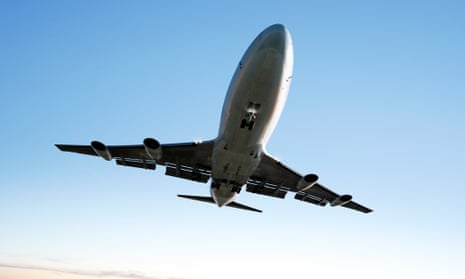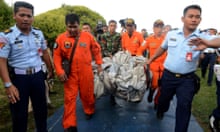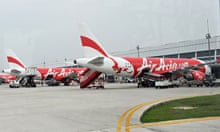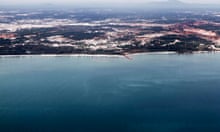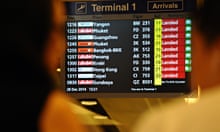Is it really so irrational to avoid air travel in the wake of the downing of Malaysia Airlines Flight MH17 over eastern Ukraine, and the TransAsia crash off the coast of Taiwan, and now the Algerian airliner in Northern Africa?
Yes. Completely, totally and entirely irrational. You are probably not going to die in an airplane crash.
It's a widespread fear after planes go down, even though the truth is that air travel is almost always boringly safe and uneventful (whether we concentrate on major US airlines or other carriers around the world). The latest global airline safety report shows there were 90 commercial airplane accidents in 2013. Only nine involved fatalities – a total of 173 people.
These deaths might initially seem to you like large figures – or make the nearly 350 fatalities in the last week between MH17 and the TransAsia tragedy (and hopefully not more) sound enormous – but you are missing crucial context: there were around 32m airline departures in 2013, according to the figures from the International Civil Aviation Organization. That means that fewer than one flight in 300,000 had an accident, and only one in 3,000,000 was fatal.
So, if flying probably won't kill you, what actually might? Bear with me here. (There are one to three bear-related deaths per year in the US).
For one, the fear of dying in a plane crash might actually kill you. For instance, in the wake of the 9/11 air tragedy, huge numbers of Americans switched from flying to driving – for the year following the attack, airline passenger miles fell between 12% and 20% while road use surged. Eventually Americans returned to the skies – but not all of them, tragically, were alive to do so, because driving long distances is much more dangerous than flying – indeed, because the increased road use may have led to more accidents. Professor Gerd Gigerenzer, a German academic, estimated that the road death toll in the year after 9/11 increased by 1,595 people.
As far as transportation is concerned, by far the riskiest way to go anywhere is to take a motorcycle. Mile-for-mile (which is not an entirely fair comparison, as we generally fly further than we bike), motorcycling is more than 3,000 times more deadly than flying. Travelling in a car or truck is about 100 times more deadly than flying. Travelling by train can end up a little less grisly – it's only twice as deadly, mile-for-mile, as flying. Overall, fewer than 2% of US deaths are transportation-related.
Whichever way you slice the figures (1,589 people were killed in the US in knife-related homicides in 2013), you're probably not going to die in a plane crash – as the saying goes, lightning tends not to strike twice (though it did cause 23 US deaths in 2013 and an estimated 6,000-24,000 worldwide).
But you are, tragically, going to die. Last year, around 55m people died worldwide, which means that, globally, 7.9 people out of every 1,000 die in any given year (a rate that is lower in industrialized countries due to better health and medicine). You're just unlikely to die travelling – by far, the two things most likely to kill you are heart disease and cancer.
So while the 777 you're flying on won't end your life, the peanuts you eat on board just might (4,600 Americans a year die from choking and obesity contributes to at least 110,000 preventable deaths a year in the US). It's just that plane fatalities are sort of a man-bites-dog story (whereas the 32 Americans who died of dog bites last year were not).
